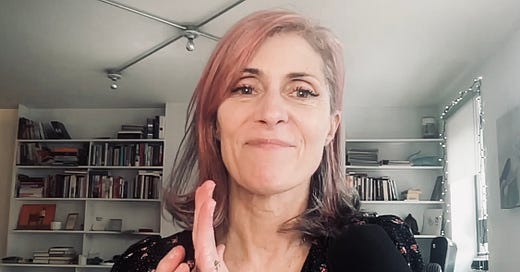I ran into a video this morning on the Twitter machine X, showing protesters outside of the United Nations Relief and Works Agency headquarters in Jerusalem. The protesters are accusing UNRWA of knowing the location of Israeli hostages because of its alleged connections with Hamas, albeit there is controversy, too, about the connections. (Someone please wake me when there is no controversy involving Israel.)
We are on day 166 of the hostages being taken; so far as we know, 134 remain alive somewhere in Gaza. The idea that aid workers (…) would know but not divulge the location of the hostages is very difficult for me to get my head around. It made me un-paywall a long interview I did with Jonathan Conricus, former international spokesperson for the IDF, who had harsh words for the role UNWRA has played in Palestinian lives. A clip:
I think UNRWA is an extremely cynical organization. Although it was founded to alleviate suffering of Arabs that fled the fighting in 1948, what they are doing now is internalizing the conflict, perpetuating the suffering of Palestinians, and fueling the conflict under the symbols of the UN…
If I were a Palestinian, I'd say, 'Thank you, please go away as fast as possible because you're keeping my people dependent. You're keeping my people reliant on aid and handouts. And as long as there's an UNRWA, we are not independent. We won't run our own affairs, and we're not masters of our own faith.' I look at UNRWA and see a very, very negative organization, an ecosystem of perpetuating a lost narrative…
NR: It's almost as though UNRWA is holding them hostage.
Many of them are held hostage by, I'd say, Arab countries who are using UNRWA as a tool against Israel, and by a UN system that is institutionally vested in there being a Palestinian state. Never mind that it isn't viable, never mind that they have failed so far in their own self-governance and corruption. Never mind that half of them at least are espousing extreme ideology very far from democracy. These are irrelevant to UNRWA. At the end of the day, they have an institution that keeps the conflict alive, and nowhere more than in Gaza.
Jonathan’s full-interview, which I conducted from a hotel patio in Tel Aviv with the sounds of bombs in the distance, can be found here.
I visited with hostages families when I was in Israel and checked in today with one of the heads at the Hostages and Missing Families Forum in Tel Aviv.
“The families are exhausted and lacking energy,” she said. “There are negotiations but not in an advanced state. We are looking to support the families while waiting to see what happens. They have a lot of strength from the hope that they will be with us soon.”
“You are trained trained to be a mother, you learn how to to do a lot of things, but not that.” Meirav Leshem Gonen, on receiving a phone call from her 23 year-old daughter Romi saying she’d been shot, that she smelled fire all around her. “There was nothing I could do to help them, and I decided that I’ll just, you know, calm her, so if she will die, she will be… very calm.” I cannot even type this without breaking down. Romi has not been seen since she was shot on October 7 and taken hostage somewhere in Gaza.
The hostage families are also my mind as we will be talking about them and other on-the-ground reporting at an event tomorrow night with the great Mike Pesca.
It’s indicative (see controversy note above) that the synagogue has asked, for security’s sake, that we do not share full details on social media. Details after the break. It’s free and if you do make, please introduce yourself.
I often think of my visit to the Nova site, where 364 young people were slaughtered on October 7. I wrote about visiting the site - “Dispatch from Israel: The Symphony at Sderot” - for Reason, and read a bit of it for you in the above video test.
Event info and a video in whose wake I can only hope to ride after the break.
Listen to this episode with a 7-day free trial
Subscribe to Make More Pie to listen to this post and get 7 days of free access to the full post archives.















